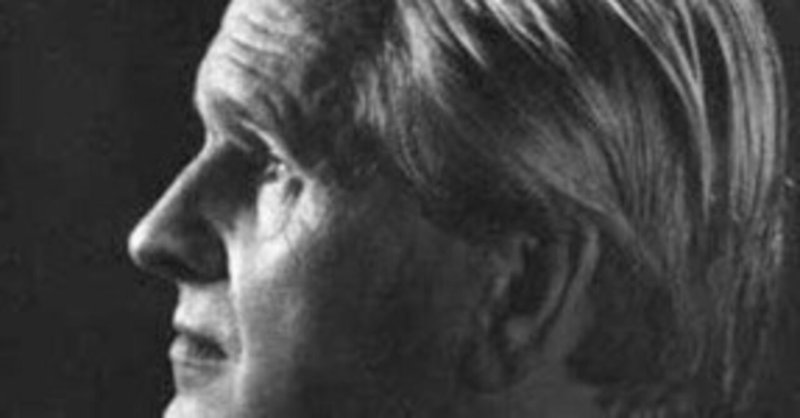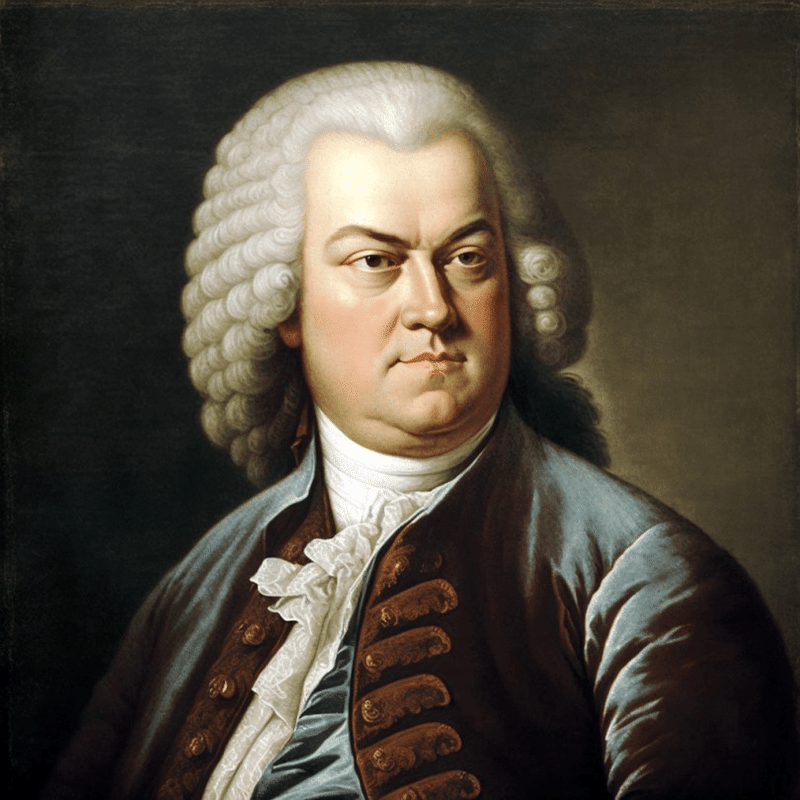
生涯をバッハに捧げたヴァルヒャ
こんにちは、音楽評論家の和田大貴です。今日は、私が尊敬するオルガン奏者の一人、ヘルムート・ヴァルヒャについて書きたいと思います。彼は、20世紀のオルガン界において、バッハの音楽を最も深く理解し、見事に表現した人物です。彼は盲目でしたが、その障害を乗り越えて、バッハのオルガン作品を二度にわたって録音し、全集を完成させました。彼の演奏は、古楽器を用いて、声部の進行が明瞭に聴き取れるようなレジストレーションを施したもので、バッハの音楽の構成力と精神性を見事に表現しています。彼はバッハの音楽に対する深い理解と敬愛をもって、その美しさと深さを聴き手に伝えることに成功しました。彼の演奏は、バッハの音楽の本質に迫るものであり、20世紀の遺産として高く評価されるに値します。
ヴァルヒャは1907年にライプツィヒで生まれました。ライプツィヒはバッハが活躍した街であり、彼は幼い頃からバッハの音楽に親しんでいました。彼はライプツィヒ音楽院で伝説的な名カントル、グスタフ・ラミーンの指導を受けましたが、16歳で失明しました。しかし、その翌年オルガニストとしてデビューし、聖トーマス教会のオルガニストを経て、(旧)西ドイツで教会オルガニストとして活躍しました。とりわけバッハ演奏の優れた解釈者として名声を博しました。
彼は歴史的な名器を弾いてはいましたが、その鋭くて明るい音色は20世紀中頃のオルガン復興運動の美意識を反映したものでした。20世紀初頭の新即物主義の風潮を反映した演奏は、安定したテンポとリズム感、各声部の明晰な描き分けや力強いサウンドを特徴としています。
ヴァルヒャの演奏の特徴と言えば、バッハの対位法の音楽的構造を手に取るように聴かせることでしょう。そのために雰囲気に流されような感情移入は避け、どこまでも楽譜を忠実に再現するという地道な表現手段に腐心していました。しかしそこから浮かび上がる音楽の透明性と、あらゆる楽器の王者たるオルガンを扱う情熱が強く感じられます。また楽曲に対するバッハ特有の構築性の再現は他のどのオルガニストよりも優れています。
ヴァルヒャは、私も尊敬するオルガン奏者の一人です。彼のバッハ演奏は、まさに20世紀のオルガン音楽の最高峰と言えるでしょう。
YouTubeには、ヴァルヒャのバッハ演奏の動画がたくさんあります。私は、以下のものをおすすめします。
バッハ:小フーガト短調(ヘルムート・ヴァルヒャ):バッハの有名なオルガン曲の一つで、中学音楽の鑑賞曲にもなっている『小フーガト短調』を、ヴァルヒャが軽快に演奏しています。この動画では、上五島のカトリック教会の写真も見ることができます。
フーガの技法 BWV. 1080( オルガン )レコード音源 1956 年録音:バッハの最後の大作である『フーガの技法』のオルガン版を、ヴァルヒャが見事に演奏しています。声部の透明性やテンポの安定感、構造の明快さなど、ヴァルヒャの演奏の特徴がよく表れています。
これらの動画やCDを聴くことで、ヴァルヒャのバッハ演奏の素晴らしさを感じることができると思います。
Walcha dedicated his life to Bach
Hello, I'm Daiki Wada, a music critic. Today, I would like to write about Helmut Walcha, one of the organ players I respect. He was the person in the 20th century organ world who had the deepest understanding of Bach's music and was able to express it brilliantly. Although he was blind, he overcame this obstacle to record Bach's organ works twice, completing a complete collection. His performance uses period instruments with registration that allows the progression of the voices to be clearly heard, and perfectly expresses the compositional power and spirituality of Bach's music. With his deep understanding and respect for Bach's music, he succeeded in conveying its beauty and depth to his listeners. His performances approach the essence of Bach's music and deserve to be highly regarded as a legacy of the 20th century.
Walcha was born in Leipzig in 1907. Leipzig was the city where Bach was active, and he was familiar with Bach's music from an early age. He studied under the legendary cantor Gustav Ramin at the Leipzig Conservatory, but he lost his eyesight at the age of 16. However, the following year he made his debut as an organist, and after working as an organist at St. Thomas Church, he worked as a church organist in (former) West Germany. He was especially famous as an excellent interpreter of Bach's performances.
Although he was playing a historical masterpiece, his sharp and bright tone reflected the aesthetic sense of the organ revival movement in the mid-20th century. His performance, which reflects the neo-immediate style of the early 20th century, is characterized by a stable tempo and sense of rhythm, a clear distinction between each voice, and a powerful sound.
One of the characteristics of Walcha's performance is that it allows you to listen to Bach's contrapuntal musical structure as if you were holding it in your hands. For this reason, he avoided empathizing with the atmosphere and worked hard to create a simple method of expression that faithfully reproduced the musical score. However, I can strongly feel the transparency of the music that emerges from this and the passion that plays with the organ, the king of all musical instruments. Moreover, his ability to reproduce Bach's characteristic structure in his compositions is better than any other organist.
Walcha is one of the organ players that I also respect. His Bach performances can truly be called the pinnacle of 20th century organ music.

よろしければサポートお願いします! いただいたサポートはクリエイターとしての活動費に使わせていただきます!
